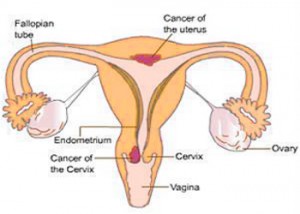 The recent news about a 54 year old Lung Cancer survivor winning gold medal at the Rio Olympics received quite a few accolades. It made me wonder if every patient suffering from Cancer could lead such an amazing life. In spite of all the research and new development in the field of Medical Science, Cancer is still quite a dreaded word. Not just the physical symptoms that it produces, cancer has a mental impact as well on the patient and his near ones. The will to fight and the determination to get back to normal health status somewhat gets shaky when you get to know that it’s Cancer.
The recent news about a 54 year old Lung Cancer survivor winning gold medal at the Rio Olympics received quite a few accolades. It made me wonder if every patient suffering from Cancer could lead such an amazing life. In spite of all the research and new development in the field of Medical Science, Cancer is still quite a dreaded word. Not just the physical symptoms that it produces, cancer has a mental impact as well on the patient and his near ones. The will to fight and the determination to get back to normal health status somewhat gets shaky when you get to know that it’s Cancer.
In recent years, Cervical Cancer has been the second most common cause of death due to cancer (after breast cancer ) in women but the good news is that Cervical Cancer is also one of the most preventable types of Cancer.
A) Knowing Cervical Cancer and why is it so common :
Cervix is the narrow part of the uterus which opens into the vagina. Cervical cancer is the malignant tumor of cervix. Cancer is more common in this part of female genitalia due to the existence of more than one type of cells in its structure, thereby increasing chances of developing precancerous stage.
B) What causes Cervical Cancer?
Human Papilloma Virus is known to be the cause in 99% cases of Cervical Cancer. It is mainly acquired by sexual contact with person already infected with it. HPV causes cervical dysplasia or abnormal growth of cervical cells. But all women infected with HPV virus DO NOT develop Cervical Cancer. 90% of HPV infections resolve on their own within 2 years. Women with persistent/recurrent HPV infection and those affected with particular strains of HPV are at higher risk of developing Cervical Cancer.
C) What increases your chance of developing Cervical Cancer?
A compromised/lowered immune system, HIV positive, AIDS, Herpes genitalia in the past, history of recurrent HPV infections, sexual relations with multiple partners, prolonged used of oral contraceptives, chronic smoking and a positive family history of cervical cancer puts you at a higher risk of Cervical Cancer.
[box type=”info” ]Get expert opinion from our doctors. Just send your query here.[/box]
D) Signs and symptoms that you should be aware of:
Cervical cancer usually doesn’t produce any symptoms in the initial stage. Symptoms possibly develop at the later stage when the disease has progressed. Be aware of the following signs and symptoms
- Any abnormal bleeding – between the periods, after sexual intercourse, pelvic examination, after attaining menopause,
- Heavy and prolonged menstruation during menopause
- Increased urine frequency
- Pelvic pain not related to your menstrual cycle
- Painful urination
- Sudden weight loss, loss of appetite, generalized weakness
- Increased vaginal discharge which may be foul, offensive, watery
E) Early Diagnosis:
Regular pelvic examination and PAP tests can diagnose pre-cancerous changes in the cervix. Early medical intervention can be done to prevent cervical cancer and treat it effectively. Prognosis of cervical cancer depends on the stage of cancer and size of tumor. Death due to cervical cancer continues to decline by 2% every year due to awareness, regular PAP tests and early detection. PAP smear diagnoses cervical cancer in its most curable stage.
E) Is it fatal?
The 5 year survival rate for women suffering from Cervical Cancer is 68% (which means 68 out of 100 women suffering from Cervical Cancer will survive for more than 5 years after diagnosis). Cervical cancer is a very slow growing cancer. Mortality is more due to absence of symptoms, delay in the diagnosis, lack of awareness, cost of tests, lack of medical facility and poor access to medical care.
[box type=”info” ]We treat patients from USA, UK, Canada, Australia, UAE & 180 more countries. Get expert opinion on your ailment, click here to ask Dr. Shah’s team directly.[/box]
F) What are the treatments available?
Surgery, radiation, chemotherapy and homeopathic treatment are the available treatments for Cervical Cancer, depending on the stage of Cancer.
G) How Homeopathy can help?
Homeopathy is a holistic mode of treatment which stimulates your own immune system in fighting with the disease producing agents. Homeopathy has a major role to play as a supportive treatment in Cervical Cancer, in relieving the symptoms, bleeding, pain, discomfort, etc. General symptoms like weight loss, loss of appetite, sleep, and weakness can be managed very well with homeopathic treatment. Homeopathy also has positive role in relieving the side effects produced by chemotherapy/radiation. It restores health and sense of well being and improves overall resistance.
[box type=”success” ]Watch what Dr. Rajesh Shah has to say about the role of Homeopathy in treating Cancer.[/box]
H) Make healthier choices:
Eat healthy, eat right, follow a particular routine, sleep well, take adequate rest, exercise regularly, quit smoking/alcohol, avoid oral/hormonal pills and indulge in a hobby to de-stress yourself.
You can’t change the fact that you have cancer. But you can definitely change your lifestyle and the way you live for the rest of your life.
I) Having a positive mindset
Homeopathy believes that majority of the chronic, autoimmune diseases arise out of prolonged stress in form of grief, anxiety, disappointment, anger, frustration, etc. Keep yourself away from all the negativities around you. Be happy, live your life to the fullest. Cancer is not the end of the world. There’s life beyond the word CANCER. Medical science has progressed many folds and there is a solution to your problems. If you still have doubts, scroll up and read the first line of this blog. Yes you can win a gold medal too! Just keep your spirits high and nobody can stop you from winning!
Blog written by Dr Amrita Utekar
[box type=”note” ]Got Questions? Get answers to all the questions regarding your ailment from Dr. Shah directly.Click here.[/box]




